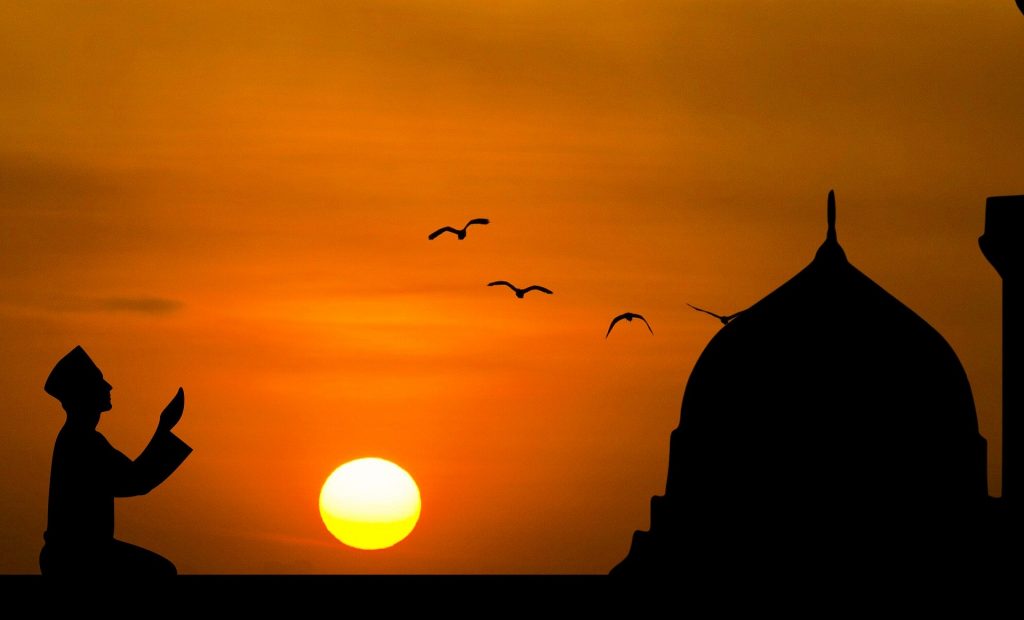Ramadan started on the evening of April 23 and will culminate on May 23. Over the 30-day period, Muslims fast during the daylight hours, a practice that is seen as one of the five pillars of Islam. They can eat before sunrise, and break their fast after dusk each day.
However, this year, world’s 1.8 billion Muslims have shifted traditions that would usually see them gather in close quarters for prayers and break day-long fasts in the company of their community.
Mosques in nearly all Muslim-majority countries around the world have been closed—with some offering daily prayer services through online streaming—while mosques in other places (notably Pakistan) have remained open and are enforcing social-distancing measures, like keeping prayer rugs apart.
In a rare occurrence in Islam’s 1,400-year history, Mecca’s Grand Mosque and the Prophet’s Mosque in Medina – the religion’s two holiest locations – will be closed to the public during the fasting period.
Prayers from inside the mosque at Mecca on the first evening of Ramadan on Thursday were restricted to clerics, security staff and cleaners, in a ceremony broadcast live on television.
Governments in Asian countries with large Muslim populations urged people to keep their distance while observing Ramadan.
Early outbreaks in Asia, home to many of the world’s 1.8 billion Muslims, were traced in some cases to pilgrims returning from Iran and Saudi Arabia to Afghanistan and Pakistan, or to gatherings of Islamic groups in India and Malaysia.
Acts of charity has acquired a new meaning this year with groups all over the world setting up food stations and delivery systems to get meals to people who need them.
According to a report published in the Forbes, in addition to the usual fasting exceptions for pregnant women, the sick, the elderly, young children and travelers, some religious leaders have said that medical workers treating coronavirus patients are also exempt.
Muslims worldwide are trying to figure out how they’ll adapt their religious practices to a radically different world during the holy month of Ramadan. In March, the National Muslim Task Force issued a statement that urged the United States’s more than 3.4 million Muslims to “follow local protocols for self-quarantine and social distancing” and requested that congregational prayers be suspended.
“Anecdotally, I do not know of a single mosque in America that remains open for business right now,” says Edward Ahmed Mitchell, the executive director of the Council of American-Islamic Relations. “And the few that were kind of stragglers and delayed by a week or so – even they ended up getting on board.”
“Historically, the Prophet Muhammad, may peace and blessings be upon him, taught people that if a plague breaks out in your land, don’t leave. And if a plague breaks out somewhere else, don’t go there. So this wasn’t a major theological dispute, “says Edward Ahmed Mitchell, the executive director of the Council of American-Islamic Relations.

